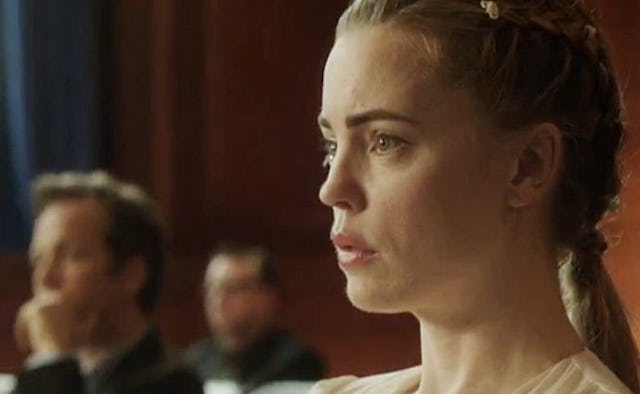The Slap, Episode 7: Parenting on Trial

Hugo starts his first day of school and doesn’t even get to lunch before the principal calls: She reports an “extended tantrum”; Hugo’s been placed in time out. Rosie reacts to the phrase “time out” as if it were “restraints,” and her subsequent diatribe about how they’ve raised their son as an equal seems to push the principal toward the decision to expel Hugo.
Rosie goes straight from the school to a meeting with the D.A., who tells her that Thanassis, Harry’s lawyer, has dug up a police report on an incident five years ago. Gary, who had arrived home to find then seven-month-old Hugo home alone, and not knowing where Rosie was, called the police. Rosie confesses to post-partum depression—she’d left the baby and driven to Montauk in a haze. Rosie, distraught at this story resurfacing, blames Hector. He accuses her of destroying 20 years of friendship over this crusade. Rosie pays a visit to Richie, hoping to convince him to enter his photos of the barbecue as evidence in the trial. He won’t do it, and his mother tells Rosie to get lost and to not contact him anymore.
Rosie’s final, desperate move before trial is to convince Harry to plead no contest, a move that only makes his lawyer move for a dismissal. Gary attends an opening for emerging artists and takes the opportunity to berate a young artist for even painting at all, saying that painting is a vestigial impulse from caveman days, when we “scratched messages on the wall hoping someone would see us.” Naturally, the young woman spends the night with him.
The next morning, the trial begins, and it briefly seems that Rosie has the upper hand—she’s a good mother whose child was attacked by an arrogant hothead. But then Thanassis, off his leash, swiftly parries: Gary’s drinking? Check. Her drinking while breastfeeding? Check? And the final blow: The post-partum depression, the day she left Hugo and drove away, her worst, most-regretted day as a mother. The day she’s been trying to atone for ever since.
The slap, as both lawyers say, is a small thing, but it’s about the fundamentals. What are the bonds of community? What are our responsibilities to one another? Does anyone see us?
Rosie’s grief and guilt, her self-flagellation, are the center of this whole disaster, a slow-moving flood that seeps outward and claims everything in its path. After her evisceration on the stand, Gary steps up to defend his wife: He asks the D.A. to introduce Richie’s photos as evidence. Richie will be the final innocent thrown onto the fire, the last, fragile bond of community dissolved.
Even though The Slap was originally an Australian novel and then television show, it settles easily into its New York home, the city built on granite that nonetheless inexorably shifts from year to year, and wherein everyone else—the rich, the poor, the “emerging artists” Gary derides—is responsible for chipping away any foothold you might have clawed out. New York, like everything else, is about tribes, as Thanassis says in an earlier episode. And sometimes the tribe is just the two of you.
This article was originally published on